Thursday Feb 26, 2026
Thursday Feb 26, 2026
Friday, 18 December 2020 00:00 - - {{hitsCtrl.values.hits}}
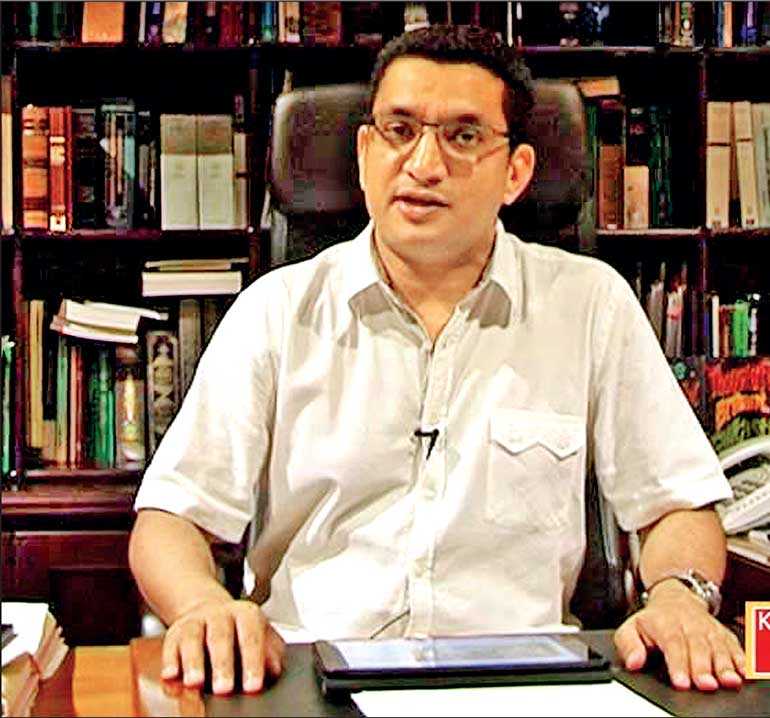
Minister of Justice M.U.M. Ali Sabry, PC
Keynote address of the Annual Scientific Congress of the Perinatal Society of Sri Lanka held at Waters Edge, Battaramulla on 16 December 2020 delivered by Minister of Justice M.U.M. Ali Sabry, PC, on the topic ‘One country, one nation, one health’.
Good morning. It is a pleasure and privilege to be addressing a group of intellectuals such as you as your keynote speaker at the Annual Scientific Congress of the Perinatal Society. Your field in medicine is one of immense importance, and I also understand one with a lot of pressure to perform with very little margin for error.
Being a parent myself, I too have had the highest expectations of your area of medicine more so than professionals who have attended to me. The contribution of the medical fraternity and the healthcare workers along with the members of the armed forces, Public Health Inspectors and some of the 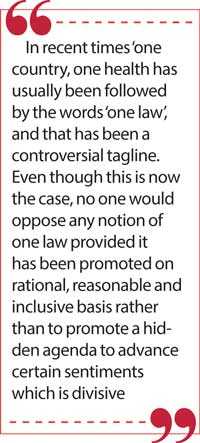 Government employees who are generally termed as first responders, in fighting the present pandemic to keep the whole country safe is unprecedented and deserves praise and gratitude of all.
Government employees who are generally termed as first responders, in fighting the present pandemic to keep the whole country safe is unprecedented and deserves praise and gratitude of all.
Therefore, I make use of this opportunity to convey how fortunate Sri Lankans are to have a system which has remarkably faced the challenges much better than more advanced countries in the world in terms of taming the first wave and the second wave, particularly taking care of those who are infected and preventing the spread thereafter.
‘One health’
When I was invited to speak today, I was intrigued by the topic of the keynote – ‘one, country, one nation, one health’. I say intrigued, because in recent times ‘one country, one health has usually been followed by the words ‘one law’, and that has been a controversial tagline. Even though this is now the case, no one would oppose any notion of one law provided it has been promoted on rational, reasonable and inclusive basis rather than to promote a hidden agenda to advance certain sentiments which is divisive. However, replacing the words with ‘one health’ gives it a distinctive interpretation, and one which gives us the opportunity to talk about critical areas that affect our everyday lives.
When we say ‘one health’ we are essentially speaking of uniformity in healthcare and applications as a whole around the world as practically possible, and a singular way of rolling out directives and procedures related to healthcare throughout the world. When it comes to this uniformity and a body that works on the ‘one health’ concept, the forerunner is the World Health Organization.
One of the objectives of the World Health Organization is ‘To develop and support processes for sharing information on health system responsiveness between countries and across regions.’ And this uniform policy exists in regions across the world – from the Centre for Disease Control and Prevention (CDC) in the USA, the European Union and the WHO operate on the basis of uniformity, certainty, transparency 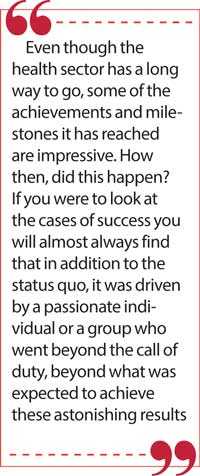 and logic.
and logic.
The benefits of this are twofold – firstly, it inspires public confidence in health policies and secondly, it allows the resources to be used in the best possible manner to achieve a common goal. Imagine the situation if all the Countries in the world were left to find their own vaccine without having the benefit of using the ones which have been invented by advanced countries
Over the years Sri Lanka has worked very closely with WHO and this has resulted in great strides in field of healthcare in Sri Lanka. We in Sri Lanka are proud of our achievements – we have made impressive progress in healthcare in different sectors:
In 2012 life expectancy was around 76 years, compared to 40 in 1930.
Child mortality improved from 175 per 1000 births in 1930 to 17 per 1000 births in 2010 (World Bank)
many of Sri Lanka’s health indicators are comparable to those found in Thailand, Malaysia and South Korea, and these countries have income levels two to six times higher than Sri Lanka (World Bank)
Around 95% of inpatient care and 50% of outpatient care is provided by the public system, while the private sector accounts for the remaining 5% and 50%, respectively, according to World Bank data.
It is evident that despite Sri Lanka not being first-off-the-blocks from an economic standpoint, it has created and developed a public healthcare system envied by some of the wealthiest countries. In an era where politicians in wealthier states argue and debate about cutting government health benefits to the public and promoting private insurance schemes, Sri Lanka has kept it head up high and insisted on the public’s right to universal healthcare.
To add to this, in recent times we have almost eradicated malaria, our approach to dengue and its treatment are world class, and the world is learning from us. This is no accident – it’s the result of hard work, sweat and design. Our free education system has created top class healthcare professionals and first responders including the doctors and I believe over 90% of the doctors in Sri Lanka studied at 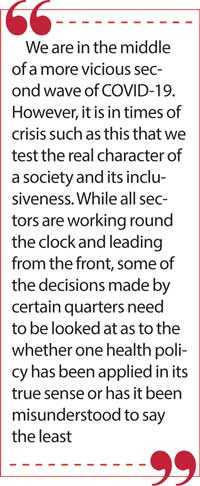 Government Universities.
Government Universities.
I also firmly believe our society which is greatly influenced by Buddhism and the values inculcated in society through the philosophy of Buddhism such as karuna, meththa, muditha and upeksha have a great role to play in rolling out empathy and compassion together with the values which is inculcated in our society as often referred to as ‘aroghya paramalaba’.
I have been following with keen interest and amazement the manner in which some members of your profession have been giving leadership in transforming our public sector institutions to different levels championing the cause for innovation, modernisation and the betterment of the society.
For instance, the Castle Street Hospital for Women in Sri Lanka is the first documented case of 5S application to a Government hospital in a low or middle-income country. It has also won numerous productivity awards. The Ampara General hospital in Sri Lanka was awarded the best hospital in the world from Arizona Institute for Health and Productivity Management in USA.
These are instances of the State hospitals competing with the private sector and winning. What is interesting about this is that the private sector is driven towards improvements to a large extent due to competition and financial gains, whereas the State sector does not have that level of financial incentive for its key persons.
I hope that members of my profession – the legal fraternity and the stakeholders, take a leaf out of your book and take up the challenge to live up to the expectations and roll out a more effective and efficacious system for the administration of justice which also could be comparable with advanced jurisdictions – just as much as yours is comparable with countries with even better economic indicators. Sadly, the present indicators such as being ranked 161 out of 189 countries in the time taken to enforce a contract and being ranked 99 in the Ease of Doing Business Index are not something to be proud of.
Impressive achievements and milestones
Even though the health sector has a long way to go, some of the achievements and milestones it has reached are impressive. How then, did this happen? If you were to look at the cases of success you will almost always find that in addition to the status quo, it was driven by a passionate individual or a group who went beyond the call of duty, beyond what was expected to achieve these astonishing results. Most people assume big changes need a large coordinated effort with massive resources. Yet, you will find that sometimes even one person with steel will and the drive can champion unprecedented change and improvement.
In the last few months, I have come across a few of these instances. During the start of the COVID-19 pandemic, the processes for collection of prescription medicine at the hospital in Kandy was following 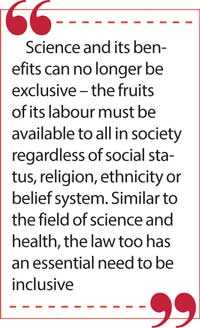 the standard process. This would frequently result in patients spending hours for each visit to collect their medicine. There was no State intervention, yet two doctors created a system where time slots were reserved online to collect the medicine at the given time slot. The amount of good this did was immeasurable. This was not a project funded or even proposed by the Government – it was a case of those doctors going over and above for public service. If the 1.8 million strong Sri Lankan public sector takes a leaf out of this and works as hard as some of these champions have done, what could be the state of this nation? We could be world beaters.
the standard process. This would frequently result in patients spending hours for each visit to collect their medicine. There was no State intervention, yet two doctors created a system where time slots were reserved online to collect the medicine at the given time slot. The amount of good this did was immeasurable. This was not a project funded or even proposed by the Government – it was a case of those doctors going over and above for public service. If the 1.8 million strong Sri Lankan public sector takes a leaf out of this and works as hard as some of these champions have done, what could be the state of this nation? We could be world beaters.
However, for this level of success to continue to thrive, it must be predictable, fair and unbiased. It must always have public support. Public support however will only come if the system is inclusive.
COVID-19 and cremations
We are in the middle of a more vicious second wave of COVID-19. However, it is in times of crisis such as this that we test the real character of a society and its inclusiveness. While all sectors are working round the clock and leading from the front, some of the decisions made by certain quarters need to be looked at as to the whether one health policy has been applied in its true sense or has it been misunderstood to say the least.
For instance, I will read from the WHO 4 September guidelines for the safe management of a dead body in the context of COVID-19.
‘there is a common assumption that people who died of a communicable disease should be cremated to prevent the spread of that disease. However, there is a lack of evidence to support this, Cremation is a matter of cultural choice and available resources.
‘the dignity of the dead, their cultural and religious traditions, and their families must be respected throughout.
‘all measures should respect the dignity of the dead person who has died of COVID-19’
These guidelines are followed to the letter in over 190 countries. 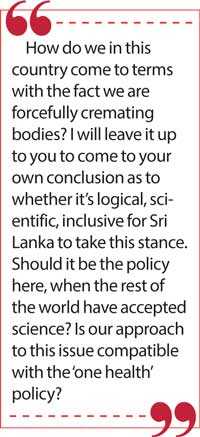
Professor Malik Peiris, the world-renowned Pathologist and Virologist, Chair Professor of Microbiology and Tam Wah-ching, Professor of Medical Sciences at The University of Hong Kong, stated that the claim that the burial of dead bodies of COVID-19 victims could lead to the spread of coronavirus is non-scientific. To quote him, “The answer is simple. Viruses can only replicate in living cells unlike certain bacteria like Ebola. Viruses by definition require living cells to replicate. Once a person has died and the cells in his body have died the virus will die. Then of course I am familiar with this business of burial. So let me be clear. I am quite happy to be cremated with or without COVID. But to imagine, first and foremost, the scientific evidence in terms of infectiousness at the time of death. The fact that the virus cannot survive after death and then if you wrap the body in some impermeable wrapping. I understand people are also talking about putting some chemical in and you bury the body six feet underground unless you bury the body right into running water. Even if there is any residual infectious virus that has to filter through many, many feet of soil and get into the water and survive in the water. To be honest, to be frank, this is complete non-scientific arguments and indeed this is why WHO and many countries in the world have no problem with this.”
In light of that, how do we in this country come to terms with the fact we are forcefully cremating bodies? I will leave it up to you to come to your own conclusion as to whether it’s logical, scientific, inclusive for Sri Lanka to take this stance. Should it be the policy here, when the rest of the world have accepted science? Is our approach to this issue compatible with the ‘one health’ policy?
Science, law and inclusivity
We have achieved so much over the centuries through science – man has progressed in so many ways due to advances in science. Yet, science has not always been inclusive – much of history is peppered with stories of scientific advances and its benefits being available to a privileged few. In the modern world however, we must accept that science and its benefits can no longer be exclusive – the fruits of its labour must be available to all in society regardless of social status, religion, ethnicity or belief system.
Similar to the field of science and health, the law too has an essential need to be inclusive. A common misconception of the law is that it equates to justice. When we say ‘rule of law’ it essentially meant that society is governed by the law and not according to the personal whims and fancies of a ruler. It’s therefore easy to mistakenly draw a parallel between law and justice. After all, if the law is applied properly, does that not mean that justice is served? The reality however, as history would attest, is very far removed from this ideal.
Time and time again, law has been used to serve the interests of one group to the detriment and sometimes horrifying destruction to the other. When studying law, the subject of jurisprudence famously covers the reasoning behind the persecution of the Jews in Nazi Germany as it presents an interesting dilemma – much of the atrocities that were carried out were actually legal as per the law of the country. They were passed by the legislature and essentially anyone engaged the persecution of the Jews was actually carrying out a lawful act under the laws of the land. Yet, to argue that rule of law existed in Nazi Germany is to essentially justify the atrocities on the basis that ‘the law was followed’.
Even apartheid was legal in South Africa – it was part and parcel of their law. It was used to oppress in that instance the majority population of the country. Slavery was legal in the United States till 1865, and even after slavery was abolished, America transitioned to segregation which plagued the country till 1964 when President Lyndon B. Johnson signed the civil rights act. Here in our own country, during the colonial times any act which was carried out to bring the freedom for our nation was termed as sedition and treason.
Which begs the question, what exactly should the law be then in a democratic country? Shouldn’t it by the very definition of democracy, reflect what the majority voted for? You can argue that the reaction to any law, positive or negative, will always be subjective, and there will always be someone who is not happy and someone who is. ‘If the majority voted in a government, then the law should be what suits them’. As logical as this may sound in theory, in practice this very argument is what has been used to advance divisive agendas.
I am sure we can for one moment put aside our religious and ethnic coloured glasses and agree that in all the examples I just gave, just because something was legal it doesn’t necessarily mean that it was moral or humane. The law should not be a tool in the hands of the ones wielding power to oppress the weak or those who are different. It should not be tyrannical or essentially vengeful. It should be inclusive, moral, humane and fair. The law needs to protect everyone, regardless of whether they voted for the government or not. A mandate by the majority isn’t a license to attack and oppress those who aren’t.
Joe Biden in his speech on 7 November said: “I will now be an American president. I will work as hard for those who didn’t vote for me — as those who did.” This is the true meaning of democracy. You are not only the leader of those who voted for you, you also lead those who didn’t. You need to be the champion of all groups, not only your favourites. This is the same sentiment expressed by our own President Gotabaya Rajapaksa at the historic Ruwanwelisaya during his inaugural speech where he says that irrespective of whether you voted or not, he will be the President for the whole of Sri Lanka and all Sri Lankans.
The goal of any government shouldn’t be to assimilate history, culture and identity into a singular character. There should not be a fear or hate of diversity – different identities, traditions and culture within a state needs to be celebrated – they should not be feared, hated or ridiculed. In other words, there should be unity in diversity.
Law should not be a license to suppress culture. Article 9 of our Constitution speaks of fostering and protecting Buddhism, and then Article 10 speaks of the freedom of thought, conscience and religion. At Article 12, our Constitution states that everyone is equal before the law and is also entitled to the equal protection of the law. It also states that a citizen shall not be discriminated against on the basis of race, religion, language, caste, sex, political opinion, place of birth or any one of such grounds. Clearly, the foundation upon which the entire state of Sri Lanka is governed by an equality clause whilst respecting diversity in our society.
Empathy and compassion
Yet, with all the inclusive laws the practical application would account for naught without a humane approach. We need empathy, compassion and the ability to relate to someone else’s misery. Sri Lanka is famous for its great Buddhist philosophy, and it is what we exported for a long time. The innate beauty and goodness of the Buddhist philosophy is without comparison.
The historic speech by J.R. Jayewardene, our former President given in San Francisco in support of Japan using the Lord Buddha’s teaching, ‘vairayen vairaya nosansindey, avairayenma vairaya sansidey’ that is to say ‘hatred does not cease from hatred, but love’ changed the course of Japan and made it what it is today. Sri Lanka is known for this empathy and compassion and should continue be known for that. Lord Buddha preached ‘siyalu sathvaoya niduk wethva nirogi wethva duken midithva’ that’s the type of compassion, the culture of mercy we must always strive to achieve. It is our legacy, and we must always retain this respected and loved character.
When speaking of empathy and compassion, a sector of our society that I believe deserves it are those who are addicted to drugs. The traditional take on this is that drug addicts are criminals and should be treated as such with incarceration. Our prisons are full of persons who have been locked up for using drugs.
I don’t agree with this view – I see a difference between drug traffickers, peddlers and addicts. What an addict is going through does not need punishment – he needs our help, he needs rehabilitation and guidance to get his life back. It is, in my opinion, a socio-medical issue which needs to be looked at from the view of medicine and science and not as a problem to be solved with the criminal justice system. It requires an effort from all of us, and especially the medical field find a long-term solution to this issue.
Another area which routinely gets ignored in the discussion about health is mental health. I believe this is a typically Asian issue, where it’s seen as an embarrassment to admit that you’re having any form of a mental issue or episode. In Sri Lankan society a ‘mental case’ is used as a derogatory insult, and no one seems to understand the gravity of being so insensitive towards a person with a medical issue. People just don’t want to seek help for fear of being ostracised. This has sadly spilt over into a situation where persons just don’t respect the importance of another’s mental wellbeing
Even Article 12, Covenant on Economic, Social and Cultural and Rights (CESCR) speaks of “the right of everyone to the enjoyment of the highest attainable standard of physical and mental health.”
This lack of ability to relate to someone else’s plight, the population’s need for shock value or negative news and the ability to go viral on social media has created the perfect storm – we are all aware of the despicable manner in which the media hounded suspected Covid-19 positive cases. The images of persons being bundled into vehicles whilst cameras rolled were being widely circulated, almost as if being Covid positive made you guilty of some grand crime.
This issue of a lack of empathy and violation of privacy is closely connected to social media hijacking people’s lives. There is something very wrong about the way patients were shown and their privacy and mental wellbeing violated.
Professionals must speak up
Yet, despite so much happening the outcry from the professionals is very soft. Professionals and organisations can’t shy away from their responsibilities in these trying times. As professionals, we have a duty towards the public. The duty is not just a passive one where the medical or legal professionals should stand back and help when asked – it is a positive one, where they are under a duty to actively fix the misconceptions and issues within their sphere of expertise and come forward as champions when their field is used as a tool to oppress and attack a vulnerable group in society.
Even in the ‘wanda pethi’ incident, there was a lacuna in the amount of those who came forward with the facts. Even when one of the members of your own profession is accused of forced sterilisation, it is important to come out and explain whether or not it was logically possible. I am aware that one of you did come out and take a strong stance publicly, and that is admirable and what should be strived for. When you’re in a position of privilege, you have a duty to use it for the common good.
When professionals take a step back and let politicians and people with hidden agendas and set prejudices drive a debate forward with no intellectual discourse based on actual experts in the field, the overpowering voice of these politicians and persons fuel a divisive, damaging and oppressive campaign. As the saying goes, ‘deva duuthayo paya gaanne nathi thana modayo karanam gahanawa’.
This is the challenge for the future – to act in line with a collective, moral and empathetic conscience. To speak out when something is wrong and to give leadership to the society which is inclusive, fair and equitable and rational.
We as professionals have a duty to make our voice heard when injustice is committed. To stand with the oppressed, to defend what is right and to stop the desecration of our professions by those with their own agenda. We must not hegemony take over as the default basis of governance – people need to believe in being part of a country that treats them with dignity and respect regardless of what social group they fall into. We can’t let our society descend into a social food chain where the powerful always overpowers the weak.
Society has a moral obligation and duty to protect those who are marginalised whether they are women, children, targets of gender-based discrimination, those who have different who have different sexual orientation or those who have mental health challenges. We need to stand with them, support them and guide them and create a culture in which every Sri Lankan feels they are part of a larger society. Different identities must be cherished and celebrated whilst assuring the safety and protection of everyone equally. Hoping things will get better with no positive action is a recipe for disaster.
Many of us, particularly the professionals have been watching with concern some sections of the media and certain elements of social media driving an agenda which is influenced by prejudice against sections of our society in time to time without actual rational, logical reasoning and the kind of consequences which may eventually extract a heavy cost on our society. Though we may feel comfortable momentarily by the fact that these are not directed at us, we cannot afford to be complacent and ignore what is happening.
One of my favourite passages of all time, which is by Martin Niemöller is as follows:
First they came for the Socialists, and I did not speak out -
Because I was not a Socialist.
Then they came for the trade unionists, and I did not speak out - Because I was not a trade unionist.
Then they came for the Jews, and I did not speak out - Because I was not a Jew.
Then they came for me - and there was no one left to speak for me.
Therefore, it is time for influential and educated members of our society such as you, and members of my profession to take a leap to shape the future of our country and the destiny of our nation. We must make it live up to the true ideals that have influenced this country brought by all great religions, and foremostly by Buddhism.
In the timeless words of Charles de Gaulle, ‘politics is too serious a matter to be left to the politicians’.
Thank you.